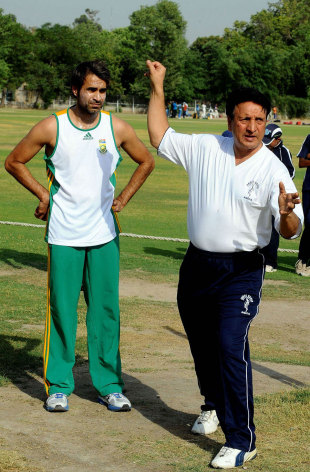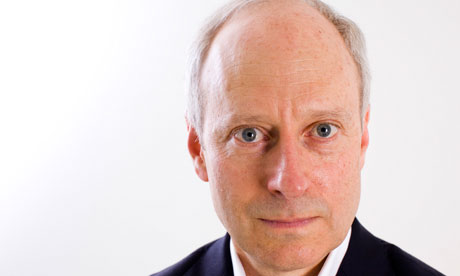By Reuven Brenner
French President Francois Hollande has announced that he will be pushing for mutualizing European debt, which Germany, the Netherlands and Finland oppose. [1]
While there are historical precedents for mutualizing debts - Alexander Hamilton 1790 assumption of states' debts - there are significant differences between that situation and the one Europe is facing now. While the US eventually managed to shape an "American tribe" - though 70 years after Hamilton, a civil war was fought that shaped eventual features of this new tribe - the notion of a European "tribe" is not on the horizon.
The Balkan tribes are as divided as they have ever been; the Scots want to separate from the rest of the United Kingdom; Italy seems to be almost as divided between south and north as it was in Garibaldi's time; and the chances of Greeks, Italians, Spanish, French intermingling with Germans to shape a European tribe do not seem much closer today than they were in preceding centuries.
The above does not imply that crisis might not make for strange bedfellows, resulting in mutualizing some debts. If that happens, the problems raised with the demutualizing of the national debt during the 1995 referendum when Quebec almost separated from Canada (there was just 1% difference in the votes which prevented it) suggest what certain clauses should appear in the potential Eurozone debt offerings and prevent crises that lack of such anticipatory clauses would bring about.
Paragraphs in the draft bill of the Quebec government tabled on December 7, 1994, in the National Assembly, indicated ways in which constitutional, territorial issues, as well as those linked with currency, debts would be settled in case of separation. The document though never addressed the question how an independent Quebec would assume responsibility for its share of Canada's public debt. Yet these were questions raised then:
|
Quebec had the following options: 1. The Quebec government convinces Canada's creditors to release Canada from their fraction of the debt, exchanging it for bonds issued by Quebec's government (or equities in enterprises); 2. Quebec issues bonds and deposits them with the Canadian government. The Canadian government continues then to bear responsibility for payments. In the European case, the countries that would not implement the policies agreed upon when the bonds are issued would also be facing these two options. If the eurozone bonds are issued, clauses in the bond contracts would have to deal with these two questions. Answers to them would indicate creditworthiness in case of mutualization, and potential demutualization. Let examine these answers. A public debt is backed by the government's right and ability to tax. The proposed euro-bonds would be backed by expectations that European Community's citizens can create sufficient taxable wealth. I highlight "taxable" because both Greece and Italy create wealth, just much of it does not pay taxes. Assume then that with the potential euro-bonds issue, Greece, Spain and Italy ("Club Med") would agree to a clause that in case of secession due to lack of performance, the bonds would be exchanged for those of the three national governments. Would creditors buy these new issues at lower interest rates that the Club Med countries are now trading? The answer is no. After all, the new paper would be backed by exactly the same thing that any governments' outstanding debt is backed by: governments' right and ability to tax. What happens with such clauses in place is that the European Community gives up the right to enforce payment on the seceding members, and that right is transferred to the seceding national governments. This is the core of the issue: Under what political umbrella can the debt be serviced more credibly? Is it under the European community umbrella, with its ability to speed up changes in fiscal, regulatory, monetary and immigration policies? Or are the Club Med countries separately, outside the European umbrella, more creditworthy in changing their fiscal, regulatory, monetary and immigration policies so as the service the debt? With these clauses in the proposed Eurozone bond, it is not clear that the issue would fly. The price buyers would pay would reflect the option that the Club Med countries would not change their policies, end up seceding, in which case the eventual national governments would be standing behind the debt. Now what happens if Germany, the Netherlands and Finland agree that the new public debt remains an obligation of the European countries, with some separate side agreements between the countries? In 1995, the assumption was that Quebec would remit to Canada the funds necessary to service the interest and the principal on the negotiated portion of its debt with a "Promise to Pay Agreement" for every issue, whatever the interest rate or the maturity. Could this work for Europe today and lower interest rates for the Club Med countries? The answers is again no. If Quebec was unable to convince lenders of its ability to service the debt under the federal umbrella, why wouldn't the rest of Canada have not the same doubts? After all, we are talking about the same amounts of money exactly. If Club Med countries are unable to raise funds now, why would the solvent European countries believe that if they back the Eurobonds now, the Club Med countries would pay them back in timely fashion? And if they do not, what are their options? To send in tax collectors, backed by armies? Thus we are back at the point where we started. Creditors know that government bonds are backed by governments' recognized rights and abilities to tax. If all Europe is held responsible for the additional debt, a credible promise that the debt will be serviced without interruptions or without imposing more taxes on Europe's solvent members, would mean that the stronger European countries would have sufficient influence on the weaker countries' fiscal and regulatory policies so that they would be changed in time and prevent default on payments. If solvent Europe does not have the stomach and ability to do this, its creditworthiness diminishes with the proposed euro-zone bonds. Briefly: no matter which of the two options is chosen, creditors must know that the entity who is responsible and held accountable for the debt is also the entity who has the right to tax and regulate. If the two are not the same, the eurozone bonds idea loses credibility. Either clauses in bond covenants or the side political agreements - if enforceable - are ways to increase such credibility. The above analyses is similar to "pre-nuptials" adapted to national levels. Such agreements are by now a common feature of marriage contracts in the United States. In France, they have a longer history. French novelist Honore de Balzac's classic Marriage Contract (1835) is dedicated to them, with perfect insight into human behavior and with broad implications relevant to today's Europe. The story is about Paul de Manerville, a wealthy gentleman who decides, against the advice of his friends, to get married at the age of 27. He marries the Spanish Natalie Evangelista, whose financial assets have been declining since the death of her father - the banker who nature furnished her with at birth. He does not see either that Natalie's loyalty is to her "tribe" - her mother, that is - and that outsiders, her husband among them, are way down the pecking order; that Natalie's mother is desperate to assure for her daughter the lavish lifestyle she believes to be her "right"; or that the various marriage intermediaries negotiating the marriage contract are trapping him. Paul ends up in an unhappy and childless marriage - with his wife happily playing the field. Reads like a good allegory for today's childless Europe; brought into a union by politicians blinded by a non-existent European "democratic ideal," misleadingly traced back to Greece (whose present population has nothing to do with Ancient Greece, except occupying the same real estate); and whose politicians sold every possible rights to their constituents - without requesting obligations. Although Germans and Dutch - not French - pay the bills, and the International Monetary Fund (IMF) and central banks play the roles of the intermediaries, reminding one of Balzac's self-interested negotiators, whom he despises, and whose wile he describes with devastating perfection. If Paul's friends had only managed to convince him to put some enforceable clauses in his marriage contract, linking "secession" to measures of future "productivity" - children, in his case (after all, that's the only source of future productivity) - perhaps Balzac's story would have had a happier ending. Perhaps German, Dutch and Finnish leaders could distribute the book before the next Group of Eight gathering, instead of dealing with IMF intermediaries' Keynesian nonsense and mindless statistics. Then they could discuss the aforementioned clauses in the mutualized debts contracts, and debate if they have the guts to enforce them, knowing that some Club Med countries would sure raise the specter of "Occupation". Note 1. Mutualizing debt involves guarantees whereby each member state not only pays for itself but also meet the obligations of any other country unable to meet its liabilities. Reuven Brenner holds the Repap Chair at McGill University's Desautels Faculty of Management, and serves on the Board and the Investment Committee of McGill's Pension Fund. He was appointed to be one of a seven member commission dealing with consequences of the 1995 potential secession of Quebec. The article draws on his Financial Options for Countries Wanting a Divorce (1995) and his Force of Finance (2002). (Copyright 2012 Reuven Brenner) |








